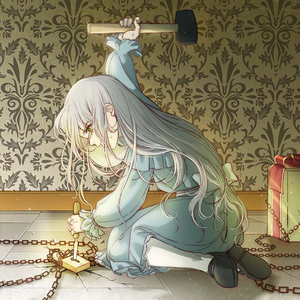When I was still quite young I came across a novel called “The Duchess of Ronan,” Ronan being the name of the kingdom in which it took place. The story revolved around the lives of Karina, the young adoptive daughter of Duke Kruscia, and her personal knight, Sir Avery Rosen.
He had spent his youth and the following years of training aspiring to become the knight commander for the Kruscia Dukedom. His genius with a sword blossomed under this passionate direction, and his intellect cut sharply through the ranks, raising him to knighthood at the early age of 16. He was charismatic and loyal, and his relentless hard work earned him the respect of his peers. Rather than a dream, he began to hear the whispers of those hinting at what he might accomplish. By 29, he was sure he would make it into a reality. Just as he was the youngest knight to be appointed under Duke Kruscia, he was hopeful and determined to become the youngest Knight Commander.
And then there was the matter of Karina. The Duke announced he would be seeking an heir, and left the estate for a few months. He was a single widower with no children after the loss of his young wife two decades prior, so it was not unnatural to announce that he would be seeking an heir. Usually at his age of just 41 many would simply expect him to wed again, but it wasn't unheard of to adopt the second or third child of another noble family to raise as one's heir. It was, however, quite strange to go about looking for one himself and disappear completely.
He returned after 3 months, and to everyone's shock, with a young girl. The rare female successor happened by tragedy or accident, but never before by choice. Her origin itself had been shrouded in mystery, and while The Duke offered no explanation, so too did those of his house remain silent at her appearance.
Lady Karina was eleven, but smaller than what one would expect. With pale skin and silver hair that fell to her hips, she looked ethereal, and so thin one could only refer to her as fragile rather than delicate. Her eyes were hidden behind long bangs parted in the center, but at the right angle, you could catch the glimmer of emerald that she tried so hard to keep hidden. Silver hair was uncommon in Ronan, and green eyes even more so. It was especially curious, because no noble of Ronan would have such traits, where the pervading prominence of blue eyes and brown hair were the crowning indicators one had noble blood, and more common colours presented in blonde or red hair and brown or purple eyes.
Sir Rosen was appointed Karina's knight on his birthday at the age of 30, just after she had been adopted into house Kruscia. Despite such a prestigious appointment, Sir Avery's status as her personal knight kept him at her side to a degree that allowed little else. The privileges that came with it such as higher pay and greater influence sat untouched. His aspirations were put on hold, and the focus of his efforts became the protection of the Lady Karina. Many thought he was somber from his dreams being cut short, but the role of a personal knight was simply different from a young aspiring one. To be seen and not heard. To be present, but not imposing. To be reliable and at all times available. The status was significantly higher than a regular knight because the sacrifice and decorum expected was to a much higher degree of propriety.
He wasn't upset about the role, or what some interpreted as the “culling” of his career. He was just lonely. Aside from casual lovers, his life was spent alone. Only the occasional visits from family composed of busy minor nobles loyal to Duke Kruscia and friends in the corps coloured his free moments. He was a talented and dedicated person, but little of his qualities aside from patience were ever utilized.
To protect a child that runs out and plays, that visits town and explores the world creating friendships haphazardly and strings her servants along, were the ideas that filled his mind once appointed, but he found Lady Karina to be a serious child. Quiet and mature, she spent all of her time inside studying and learning how to properly govern. He came to feel more like an expensive toy, polished and engineered to perform wonders for a child that had already grown up too fast to need him. She was studious and reliable, and more so than any noble he had met prior, always aware of and working hard to fulfill the duty of noblesse oblige.
Karina lived a life one might call obsessed. She invested her all into managing the dukedom for Duke Kruscia, her father. The gratitude she held for him adopting her was the core of her work ethic, and the sense of responsibility that she acquired with the title as heir to the dukedom was something she welcomed with trembling arms, weak, but resolved to carry the burden that came with her new position.
With her attention committed only to the affairs of managing obligations and as adulthood granted her the responsibility of the image of the Dukedom, the relationships between Kruscia and the other nobility suffered. Trade and influence wasted away as her consistent absenteeism in the noble circles was seen as simple arrogance. She became a whisper among them, known only to be cold and aloof like a cat, acquiring the nickname the Duchess Cat of Ronan.
Sir Avery's and Lady Karina's relationship of lord and subject strengthened through many years, becoming a true friendship beyond that of a Lord's simple trust and a knight's simple loyalty. Despite this closeness, they never knew one another's dreams. Lady Karina never knew of Sir Avery's aspirations as knight commander as he never chose to tell her. His appointment as her knight would put the responsibility for his lack of progression upon her, and over the many years, he had become content.
She had an unrequited love for him, but her responsibility to her position and her work for the duchy was always foremost. This self-imposed half-life was maintained throughout the length of the novel. Detailed thoroughly was her continual decline socially and physically from her lifestyle of overwork and seclusion while Sir Avery stood by her side.
It wasn't really a happy tale, but for some reason I was haunted by these two dummies that valiantly wasted their entire lives without so much as a humble vacation. Thematically speaking, I'm sure the point of the novel was to show the simple pride and honor of living diligently to children my age, express that even those of high status have many responsibilities, and to explain the necessity of sacrifice in order to fulfill one's duties etc. I just couldn't agree with it though. Even as I grew up and found my way into a decent college, and later invested myself in a career, those two still clung to my every thought. Perhaps if I had been more creative I would have just re-written the novel to satisfy my personal whims, but I chose to ponder it, and instead wonder in secret.
I had my own interests of course. I spent my free time hiking or reading, and I had friends from all walks of life. Yet. It was as if I had become just like the two fools I so admonished. I had spent two decades with all of my emotions from this novel bundled up into “what could have been” for Avery, and pitying the naive Karina. Although the background of my life had slowly become about their “what if,” I couldn't imagine it any other way. My sharp personality was a product of this long cultivated judgment. Even whilst the idea of the “greater good” permeated every strata of society and culture to some extent, I still could never truly commit myself to this notion. After all, logically speaking if you waste away for all else, then your subjective life had no value. I became half invested in this world and in theirs, always slightly out of place, and ever the hypocrite.
Would I just keep living like this, checking off the boxes of what a “good life” looks like? Go to school. Graduate. Get a career. Make friends. Sleep 8 hours a day etc. It was bizarre to fall into the same trap of obligation, but not even have passion or loyalty as an excuse. There wasn't anything stopping me from just picking up and doing something, anything. Life should have a little recklessness to it, and that was certainly something in which I was lacking.
I made my way to the bank without much thought. If I withdrew my savings, I'm sure I could find something spontaneous for which to use it. I could start experiencing life instead of just existing.
It was kind of a strange time to go to the bank, around 9:30 in the morning, so it was relatively slow with only a few people in line ahead of me. A man came in to wait behind me, and after about a minute made his way ahead of line to the counter, pulling out a small black handgun as he slid by. I found myself quietly being shepherded to the side of the lobby, but nothing really stood out much. I still felt detached, like an onlooker. It was ludicrous. What upset me was that I had lost touch with reality to the extent that this situation of all things should have at least jostled some part of my consciousness to the present, yet here I was of in my head still far, far away. Instead of seating myself with everyone else, I remained standing, and as those around me shifted nervously, the barest chuckle of hysteria crept out.
A sudden impact drove me down to the floor, and I watched as rivulets of blood blossomed from the new hole in my chest, staining my shirt. I was shot for not being a sitting sheep, and even as I fell bleeding I laughed until my lungs failed and death put me to sleep.
And that was how I died. It is what it is. Que sera, sera.
I never believed in anything after death, but I was here all of a sudden, definitely dead and sitting in blackness, somehow illuminated as if it were I who was glowing. I knew something of a “God-like” presence was inhabiting the same space, but there was no conversation. I felt what seemed to be pity, and then acceptance from... something. And then there was nothing again.












Comments (2)
See all